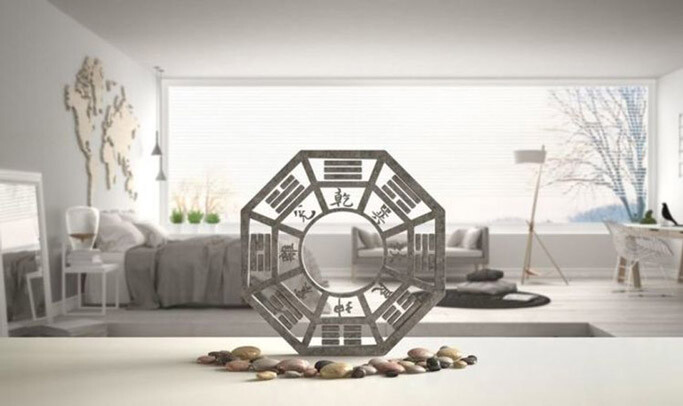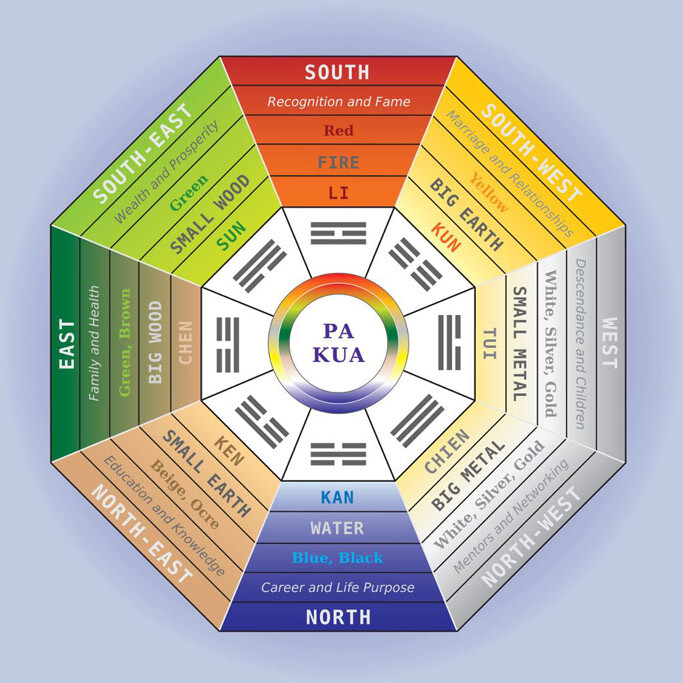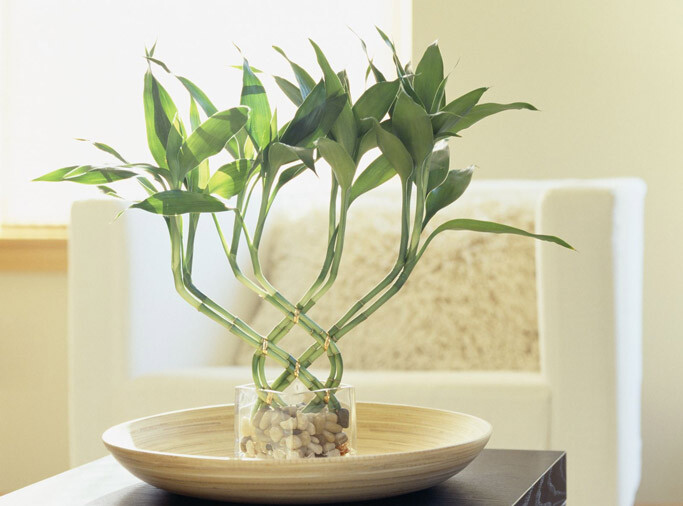What is feng shui? Feng shui meaning, definition and history. Basic feng shui principles; bagua, yin yang and chi. Effective and practical feng shui rules for decoration…
The feng shui philosophy, which has been influential all over the world for thousands of years, continues to maintain its popularity today. Feng shui consists of a set of principles that help people harmonize their living spaces with what they want to have. By arranging your living spaces according to the feng shui rules; you can add health, happiness, love and wealth to your life!
In this article, we talked about feng shui meaning, principles and rules that we hear a lot but know very little about. Once you learn the basic feng shui principles, we’re sure you’ll want to make a few changes to your home. 🙂
Do you want to change your life? The simplest way to do this is to change your environment.
Laura Cerrano
Note: After this article where we answered the question “What is feng shui“, don’t forget to read our “Feng Shui House Tips” article where we give different tips for each room.
Contents
What is Feng Shui?
Feng Shui Meaning

Feng shui is an ancient Chinese teaching that aims to create a balance between living spaces and the natural environment. The word “Feng” means “wind” and the word “Shui” means “water”. This phrase is derived from an ancient poem that talks about the connection between human life and the environment.
Feng shui philosophy is based on “Chi”, the life energy that connects all living things in the universe. It is not a decoration style, it is a discipline compatible with different decoration styles. Feng shui rules aim to improve human life. It is believed that arranging the living environment in line with natural principles and in accordance with the flow of energy will bring health, happiness and wealth.
Feng Shui History
The answer to the question “What is feng shui” would be incomplete without telling the origin story of this philosophy. Originating in Ancient China between the 2nd and 4th centuries BC , Feng Shui is an ancient art and science. The Chinese Emperors of the era hire some experts to find the ideal places for burial. Thereupon, the places with the best energy for the afterlife are explored. And it is concluded that energy cannot be seen like the wind, it can only be felt. Thus, a set of methods is created under the name of Feng Shui rules for regulating and directing energy.
The feng shui principles adopted by emperors and aristocrats are also applied in living spaces over time. Finding the right energy becomes so important that the first compass was invented for feng shui. Invented in China in the 1st century AD, the compass was originally used to find suitable locations for structures, based on the geomagnetic principles of Feng Shui. This philosophy, which has been developed for thousands of years; It continues to be used in many different areas from interior design to building design and urban planning.
The Basic Feng Shui Principles
While different feng shui schools offer different variations, the common feng shui principles include:
1. The Five Elements

Feng shui focuses on the five elements; earth, metal, water, wood and fire. Each element also corresponds to different emotions, colors, shapes and areas on the bagua map. In order to ensure the flow of energy (Chi) in the space you live in, you must balance these five elements and constantly adjust them according to your changing needs.
The properties corresponding to the five elements are:
- Wood: Creativity and growth
- Fire: Leadership and boldness
- Earth: Strength and stability
- Metal: Focus and order
- Water: Emotion and inspiration
By balancing these five elements in accordance with your needs in the area you live in, you can ensure that the corresponding characteristics develop in your life.
2. The Feng Shui Bagua Map

“Bagua“, which means “eight areas”, is a feng shui energy map placed on the floor plan of your house. Each of these areas represents a different category of your life: family, wealth, health, helpful people, children, knowledge, fame, career and partnerships.
Although the bagua is usually used by placing it on the entire house plan, it can be used as a single room, office, land, etc. It is a conceptual map that can also be used for It is a compass that indicates habitats and many other symbolic meanings.
Sometimes depicted as an octagon and sometimes a square, the Bagua consists of eight areas around a center. Here the center represents you. Each field (gua); It has many different meanings such as colors, elements, shapes, organs. If any of these areas in your life need improvement, you need to apply feng shui principles to the relevant area of your home.
3. Yin and Yang
The philosophy of yin and yang has influenced many areas of ancient Chinese study, from martial arts to medicine and Feng Shui. The concept of ying yang states that opposing forces are interconnected and must work together to create harmony. “Yin” is a passive, gentle energy, while “Yang” is an aggressive and courageous energy.
According to its use in feng shui; “Yin energy” in calm and relaxing spaces such as bedrooms and bathrooms should be balanced with “Yang energy” in more active and productive spaces such as living room and kitchen.
Yin is feminine energy and is associated with:
- Night
- Coolness
- Quiet
Yang is masculine energy and is associated with:
- The Sun
- Heat
- Sociability
Feng Shui Rules for Decoration
1. Empty Your Mind

You don’t have to be a feng shui expert to say that the messier you are, the messier your mind will be. According to feng shui, a clutter of unnecessary items occupies the precious space needed by the fresh energy coming into your home. Therefore, you should make it a habit to keep your living space tidy and clean.
2. Take Control

One of the most important principles of feng shui philosophy is the position of the furniture. In particular, some furniture has different meanings and their placement is very important. E.g; your bed represents you, your desk represents your career and your hearth represents your wealth. Although you cannot move the hob, you can put your bed and table in a better position.
According to feng shui, the most important detail in furniture placement is being able to see the door when using these items. Can you see the door when you’re in bed or sitting at your desk? By positioning your belongings so that you can see the door (not aligned with the door), you can directly meet the energy and control your life.
3. Make Room for a New Love

Are you looking for a new love? According to feng shui, you can start by pretending. Look at your home and answer the question: Is your home suitable for a second person to live in? For example, if there is only one towel in the bathroom or you have a single bed, your home cannot be said to be inviting for love. So even if that person hasn’t arrived yet, you can already prepare the place. You can buy and organize your items and accessories in pairs.
On the other hand, to get over an old relationship, you have to cut the “energy wire”. The items left from your ex in your home form a bond with that person as energy. If you have ended a relationship, it is recommended that you release old items that are not useful to you to make room for a new relationship.
4. Remove Barriers from Your Life
Are you constantly facing obstacles in your life? Try removing obstacles on your favorite paths in your home (such as the passage from the bedroom to the bathroom). For example, do your doors open fully? Are there any items you constantly bump into while passing by? In short, try to get rid of all the obstacles that come your way while moving around the house. Empty the hallway and aisle as much as possible. According to feng shui, the obstacles you constantly encounter without realizing it are reflected in your life. That’s why you need to remove obstacles in your path and make your flow as easy as possible.
5. Increase Your Productivity and Earnings

According to feng shui, you should add live plants to your home and office to increase money energy. Plants contain life energy, so they symbolize vitality and fertility. In addition, in the furniture and accessories in your work area; don’t forget to include the wood element, which means new opportunities, growth and wealth.
In this article titled “What is Feng Shui”, we briefly talked about feng shui meaning, principles and rules. For more feng shui decoration suggestions, you can read our article titled “Feng Shui Home Tips“, where we provide separate tips for each room decoration. Don’t forget to visit our homepage for inspiration on different topics related to interior design & decoration! 🙂



